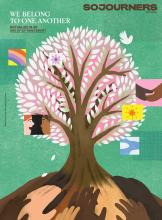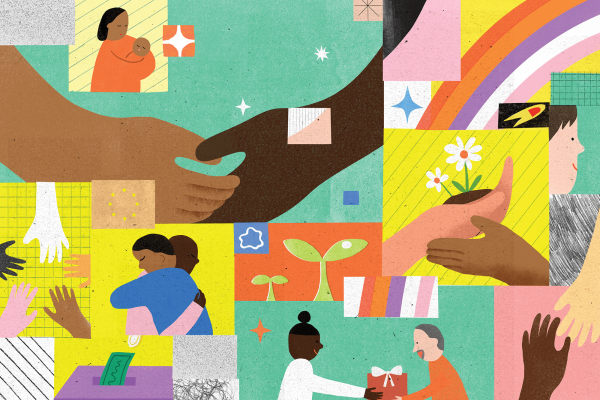IN THE EARLY months of the pandemic, the “Care Bears” team of my local chapter of Southerners on New Ground (SONG), a Black, queer-led community of carceral abolitionists, reached out to members of the SONG family by phone. A small box arrived in the mail a few weeks later. The Care Bears had decided I’d benefit from a “a gift of love in a trying time”—tangerine tea, a candle, colored pencils, a notebook, and a tiny bottle of dandelion tincture made by the resident SONG herbalist.
I was drawn into the extended SONG family in 2017 when I joined the Black Mama’s Bail Out Action campaign. For Mother’s Day, SONG members paid the bail of mothers and caregivers held in the Durham, N.C. county jail because, like tens of thousands of people imprisoned in the U.S., they couldn’t afford their release. As a minister familiar with the jail’s protocols, I was called on to help obtain consent from the women being held. SONG raised the funds as part of a practice of mutual aid through paying off bail debt. “Money kept you in,” Pat Hussain, a co-founder of SONG said. “Black love got you out.”
My involvement with SONG has taught me the interconnections of Black feminism, prison abolitionism, and mutual aid—all as part of movements to create everyday institutions that nurture life. Abolitionism is about undoing the violence of incarceration, Angela Y. Davis writes in Abolition Democracy, “but it is also about building up, about creating new institutions.” And abolitionist Ruth Wilson Gilmore asserts that “abolition is about presence, not absence.”
Both Davis and Gilmore center the need for organized community to sustain life in a destructive world. They call for the creation of new institutions of mutual care while eroding the carceral system’s grip on society. With exceptional clarity, organizer and educator Mariame Kaba recently reissued this call: “Our work isn’t just a movement against cages and cops. It’s a movement for different ways of living together.” In this movement for a shared life where everyone can experience wholeness, “mutual aid exposes the failures of the current system and shows an alternative.”
Read the Full Article

